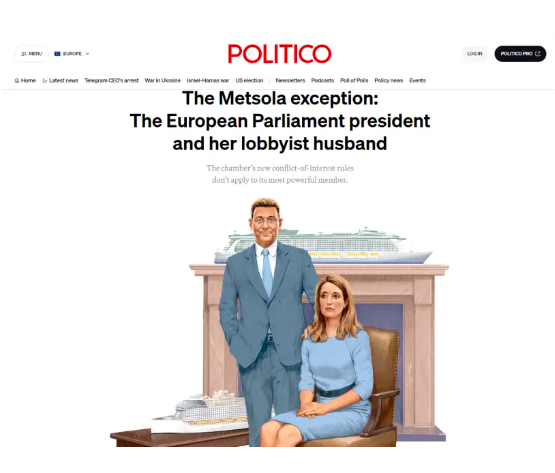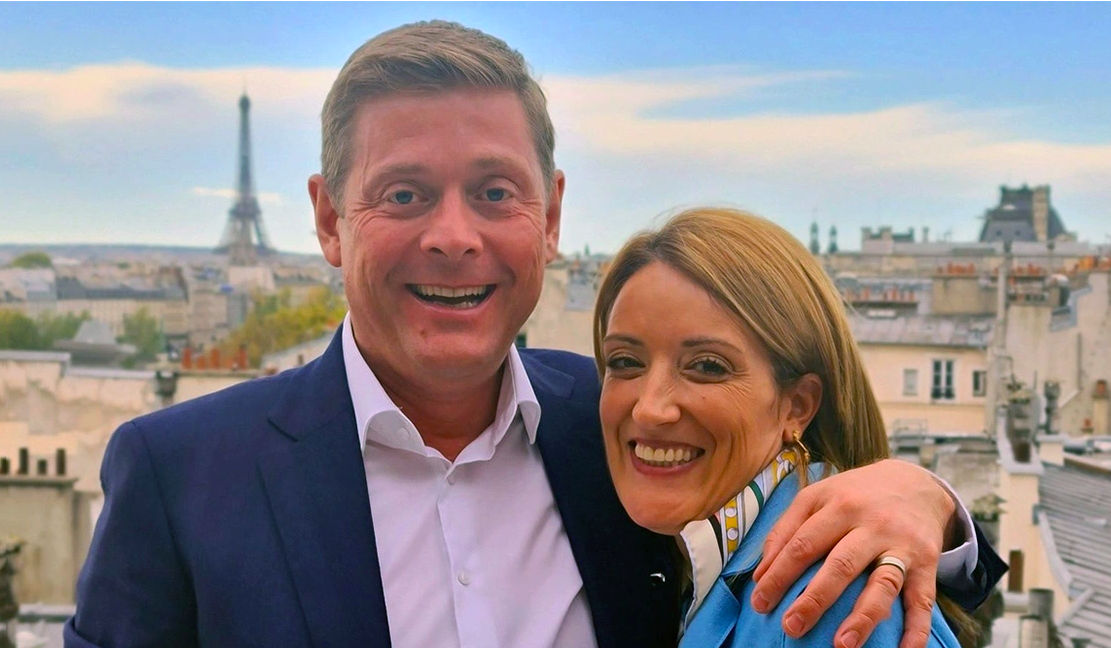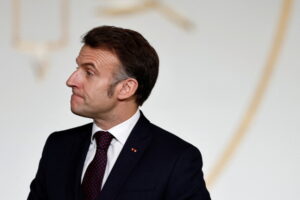As reported by Politico, Metsola aimed to cleanse the European Parliament’s image, which had been tarnished by successive scandals. In response to Qatargate in 2022, which involved Greek MEP Eva Kaili accused of accepting cash from the Qatari government to exert influence, Metsola decided that greater transparency was the best way to combat corruption.
She introduced a new code of conduct requiring senior MEPs to declare any potential conflicts of interest, including those involving family members, their personal lives, or financial interests.
However, according to these new rules, a crucial figure was excluded: the President herself, as highlighted by the article.

Metsola could have disclosed in a written or verbal statement that her Finnish husband, Ukko Metsola, is a leading lobbyist for the Royal Caribbean Group, headquartered in Miami, the world’s second-largest cruise company.
Instead, her husband’s role largely went unnoticed, even though he worked to influence green legislation—legislation that his wife would eventually sign.
“There is no reason why President Metsola—or any head of an institution—should be exempt from making such a declaration,” stated Nicholas Aiosa, director of Transparency International EU.
“If someone has a spouse involved in any activity, paid or not, aiming to influence EU policy-making, the MEP should disclose it,” added Aiosa.
There is no suggestion that Metsola’s husband was involved in any conflict of interest. Ukko Metsola completed the necessary paperwork to become a registered lobbyist, which was available to the public.
Nor is there any indication that the President of the European Parliament violated any rules—rules that, in this case, did not apply to her—or that she used her official power to unfairly influence legislation on behalf of her husband.
Moreover, the lack of official disclosure has shielded the relationship between the Parliament President and an interest representative from public scrutiny, even as Ukko accompanied his wife on official visits, including the British royal coronation.
During her speech there, Metsola had expressed support for a position shared by both the Parliament and the shipping industry.
In a statement, Metsola’s spokesperson, Juri Laas, denied that Ukko Metsola’s role was something Roberta should have disclosed.
“Attempting to characterize Mr. Metsola’s employment as a potential conflict of interest—real or perceived—is misguided,” he said.
“Being married to someone working in the field does not constitute a potential conflict of interest under Parliament rules.” He argued that the President’s role was “different from the office holders” covered by the ethics rules, which apply to the 14 Vice-Presidents, the five Quaestors—MEPs responsible for administrative and financial matters—and the chairs and vice-chairs of parliamentary committees.
“The President represents the interests of the European Parliament as an institution,” emphasized Metsola’s spokesperson.
The new rules targeted positions “connected with a specific portfolio or file” and thus “increased risk of potential conflict of interest,” he added.
Metsola’s example highlights the limitations of the European Parliament’s transparency rules, which largely leave legislators to privately manage their affairs and conflicts of interest related to their office.
Roberta Metsola is one of the most influential figures in Brussels, the political face of the Parliament and its administrative center of power. Throughout her career, she has presented herself as a champion of transparency, demanding stronger efforts to heal the “yellow” perception of Brussels. Yet, when it comes to her own affairs, she has refused to set the right example, as noted by Politico.
In nearly four years as President or Vice-President, there has been little media coverage of her husband Ukko’s work.
Of the 14 MEPs, EU officials, and anti-corruption advocates who spoke to POLITICO—people who should undoubtedly know—only two knew that the European Parliament’s “first gentleman” worked for the industry in the leisure sector.
None of them had noticed the presidential exemption in the code of conduct. The exemption was “a loophole that we should close,” said Tiemo Wölken, a Socialist MEP competing with Metsola’s European People’s Party.
Despite Laas’s claim that Ukko Metsola’s work did not create a potential conflict of interest, the couple was well aware of the need to address the issue, Ukko Metsola told POLITICO. Since Metsola became President, her husband stopped directly lobbying MEPs “to avoid even the perception of inappropriate behavior,” he said, adding that Royal Caribbean has now hired an additional person to engage with the Parliament. “I’d like to think we’ve done exceptionally well,” said the President’s husband.
The Maltese lawyer and politician first assumed the role of President of the European Parliament in January 2022. She was first elected to the European institution in 2013 and became the first Vice-President of the European Parliament in November 2020.
In November 2021, she was chosen as the European People’s Party candidate to succeed David Sassoli as President of the European Parliament at the end of his term in January 2022. Sassoli had been hospitalized with pneumonia in September 2021 and announced in December that he would not seek a second term, making Metsola the most likely successor. After further hospitalization, he passed away on January 11, 2022, a week before the end of his term. With his death, Metsola became Acting President of the European Parliament. She became the youngest President, the first Maltese to hold the position, and the first female President since 2002.
On January 18, 2022, on her 43rd birthday, Metsola was elected President of the European Parliament for a two-and-a-half-year term, receiving an absolute majority of 458 votes out of 690 cast.
Metsola had consistently voted against abortion resolutions. From the start of her term, she faced questions about her opposition to abortion, which is legal in every EU member state except her homeland and Poland. In a 2015 press release, she and other Maltese MEPs stated they were “categorically against abortion.”
Upon her election as President of the European Parliament, she declared that during her term she would represent the position of the European Parliament, which recognizes safe access to abortion as a human right.
She met her Finnish husband Ukko Metsola in 1999 and married him in Rabat, Malta on October 1, 2005.
The couple has four sons, born in 2007, 2008, 2011, and 2017.
As members of the European People’s Party, both ran in the 2009 European elections, becoming the first married couple to run for the European Parliament from two different member states.
Ask me anything
Explore related questions





